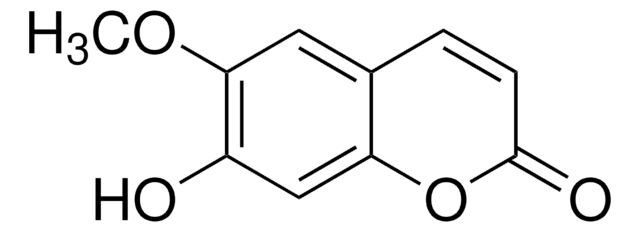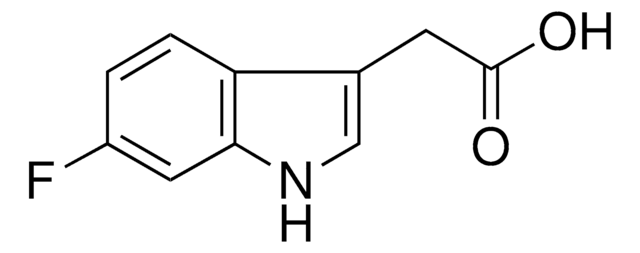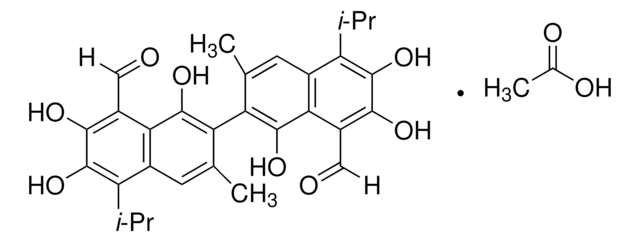SML1016
Camalexin
≥98% (HPLC)
Sinónimos:
3-(Thiazol-2-yl)-1H-indole, Camalexine
About This Item
Productos recomendados
Análisis
≥98% (HPLC)
formulario
powder
color
white to light brown
solubilidad
DMSO: 20 mg/mL, clear
temp. de almacenamiento
2-8°C
cadena SMILES
C12=CC=CC=C1NC=C2C3=NC=CS3
InChI
1S/C11H8N2S/c1-2-4-10-8(3-1)9(7-13-10)11-12-5-6-14-11/h1-7,13H
Clave InChI
IYODIJVWGPRBGQ-UHFFFAOYSA-N
Aplicación
Acciones bioquímicas o fisiológicas
Características y beneficios
Palabra de señalización
Warning
Frases de peligro
Consejos de prudencia
Clasificaciones de peligro
Acute Tox. 4 Oral - Eye Irrit. 2 - Skin Irrit. 2 - STOT SE 3
Órganos de actuación
Respiratory system
Código de clase de almacenamiento
11 - Combustible Solids
Clase de riesgo para el agua (WGK)
WGK 3
Punto de inflamabilidad (°F)
Not applicable
Punto de inflamabilidad (°C)
Not applicable
Certificados de análisis (COA)
Busque Certificados de análisis (COA) introduciendo el número de lote del producto. Los números de lote se encuentran en la etiqueta del producto después de las palabras «Lot» o «Batch»
¿Ya tiene este producto?
Encuentre la documentación para los productos que ha comprado recientemente en la Biblioteca de documentos.
Artículos
Cell cycle phases (G1, S, G2, M) regulate cell growth, DNA replication, and division in proliferating cells.
Apoptosis regulation involves multiple pathways and molecules for cellular homeostasis.
Nuestro equipo de científicos tiene experiencia en todas las áreas de investigación: Ciencias de la vida, Ciencia de los materiales, Síntesis química, Cromatografía, Analítica y muchas otras.
Póngase en contacto con el Servicio técnico







